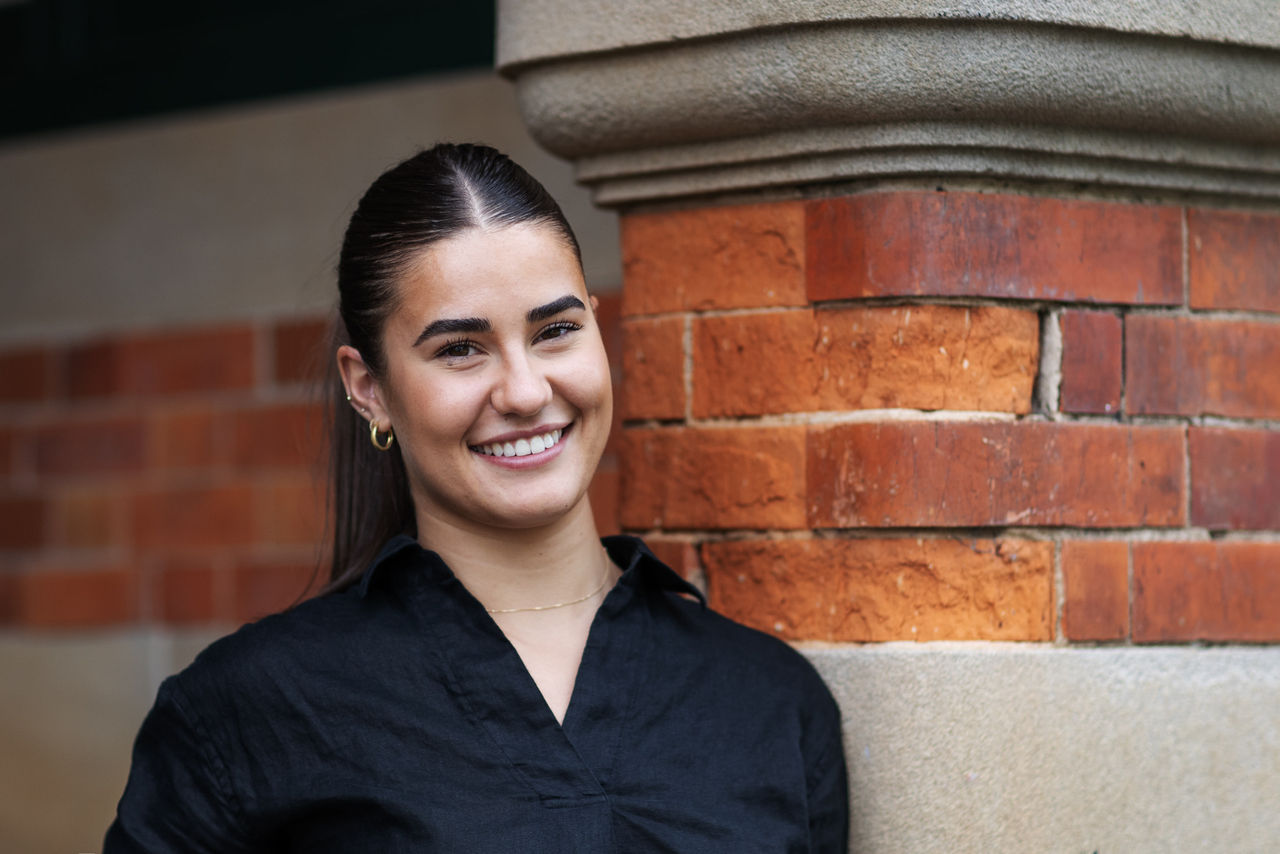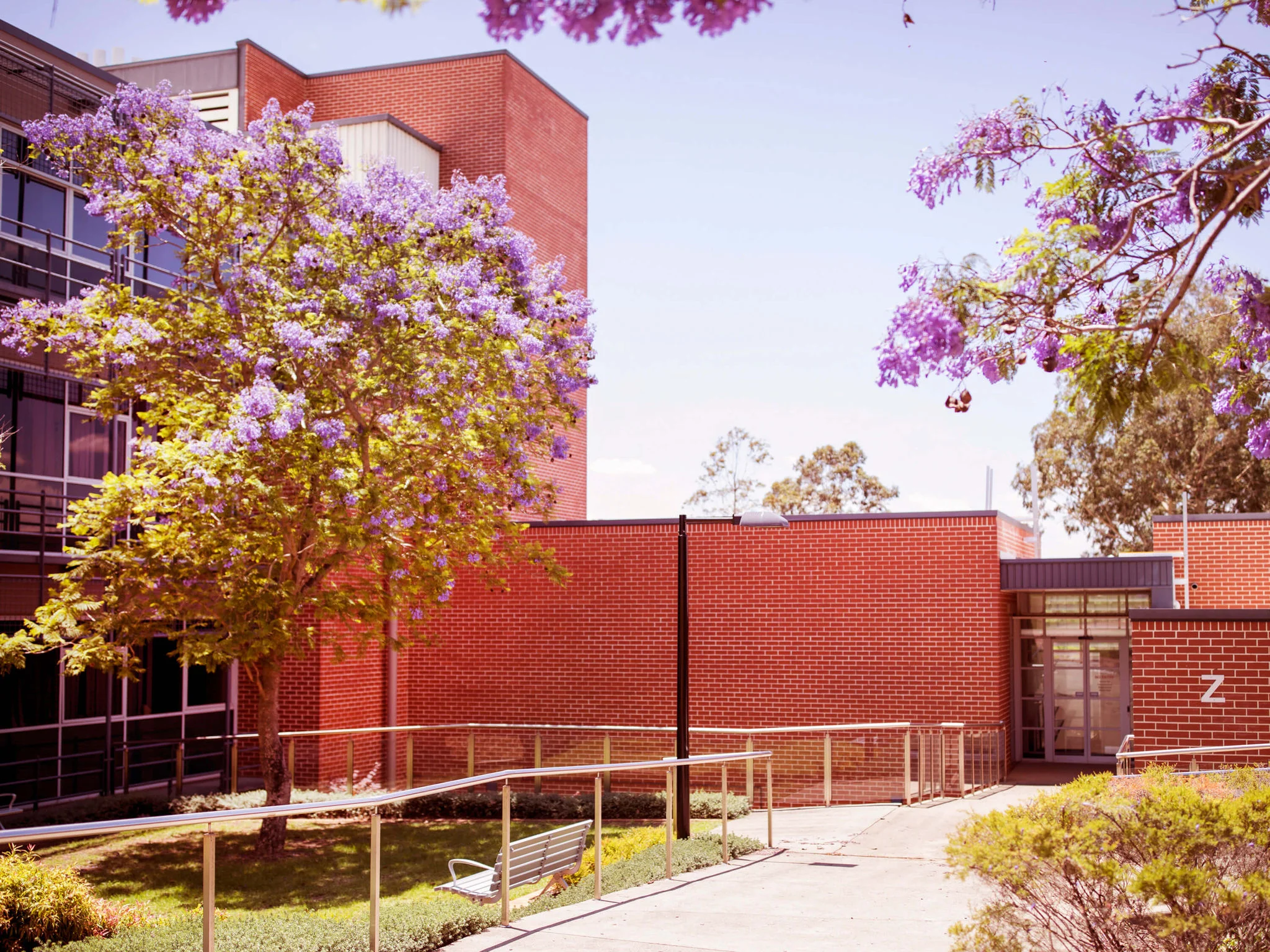With a major in Environmental Health you’ll find yourself working toward creating thought-provoking and dynamic work environments which lead to safer and healthier communities.
Bachelor of Science (Environmental Health)
The air we breathe, the water we drink, the food we eat, and the places we live, work and play all have major impacts on our health and well-being. The Environmental Health major will equip you to explore the diverse range of natural and built-environment challenges that confront us, from the mitigation of human health impacts of global climate change through to the more localised issues of air and water quality, waste management, food security, environmental noise and healthy communities. The major areas of study addressed within the major include air pollution; community studies; emergency management; environmental regulation and policy; environmental monitoring; environmental planning; environmental protection; epidemiology; food safety; noise, occupational environment; risk assessment; sustainable environmental management; toxicology; urban development and water pollution.
Access to World Class lab facilities
You will have access to dedicated Environmental and Occupational Health Labs at the Hawkesbury campus, located in a designated regional town in NSW. You will gain hands on experience with specialised monitoring equipment to develop skills in aerosols analysis, water quality testing, air quality analysis and soil contamination testing.
Access to industry placements
There will be an opportunity to undertake a short work placement within a professional organisation in the subject, Work Internship for Science Professionals. The placement will allow students to observe and develop professional skills and behaviour and integrate theoretical and practical science knowledge and conventions into a real world setting. The subject will assure that students have job readiness.
Elective options
The course structure also provides flexibility to take 4 subjects to broaden the knowledge in another discipline, including business and sustainable tourism, or a Minor in Conservation Science or Microbiology.
Depending on your major, graduates can apply for admission to the Royal Australian Chemical Institute, the Australian Society of Microbiology, the Australian Institute of Biology, the Australian Institute of Physics, the Australian Society for Biochemistry and Molecular Biology, the Royal Zoological Society of New South Wales, and Environmental Health Australia.
Our new, $30-million, state-of-the art research facilities and labs include dedicated Environmental and Occupational Health Labs, imaging lab, instrumentation lab, polarisation microscopy systems, food pilot plant, food science kitchen, development systems for detecting fingerprints, specialised light sources and cutting-edge photography technologies.
Cool toys for serious work
Perform cutting-edge research using high-tech instruments, like the Secondary Ion Mass Spectrometer, the confocal bio-imaging facility, and the Nuclear Magnetic Resonance facility, arguably the best in the Southern Hemisphere.
BSc (Environmental Health) has Provisional Accreditation with Environmental Health Australia (EHA).
What you can expect to study
The program structure is outlined in our handbook. Here you can view all of the subjects you will be studying.
Career Opportunities
Graduates are employed in local councils, the Australian Defence Force, Departments of Health, and many other industries as Environmental Health Officers (accredited), public health officers, water quality officers, environment protection officers, food safety practitioners/auditors, environmental (health) consultants.
Entry requirements for domestic students
Applicants who have undertaken studies overseas may have to provide proof of proficiency in English. Local applicants who are applying through the Universities Admissions Centre (UAC) will find details of minimum English proficiency requirements and acceptable proof on the UAC website. Local applicants applying directly to the University should also use the information provided on the UAC website. Find out more here.
Admission
- Assumed Knowledge: Students should have at least two unit English, and two unit science (any science) and two unit mathematics at year 12 equivalent.
Please consult the handbook for more information.
Entry requirements for international students
**Please note, if this course lists a part-time option, this is not available to International Students on a Student Visa.
Please consult the handbook for more information regarding entry requirements for this course.
You can read more about international academic entry requirements here.
Indicative annual fee
A Commonwealth Supported Place (CSP) is one that is subsidised by the Commonwealth and applicable only to Domestic students. This means that the Australian Government pays part of your fees towards your program, therefore reducing your program fees, and the remaining amount is paid by you, this is considered your Student Contribution.
The fee estimates provided are indicative only and subject to change. These estimates are based on the current fee structures for a normal full time study load. However, the final fees may vary depending on several factors, including the specific subjects chosen, the duration and timing of study, and annual fee adjustments (subject to Commonwealth student contribution band rates). Please note that these estimates do not include the Student Services and Amenities Fee. We encourage all prospective and current students to consult with our Student Services Hub for the most current fee information.
As a multi-campus institution, Western Sydney University and its entities reserves the right to alter the location of its programs between campuses and other locations as necessary.
To work out how much your Student Contribution will be before you study, you will first need to find out the Student Contribution band your subjects fit into based on their general discipline area.
You can then calculate your student contributions to work out the total amount of your contribution.
The Higher Education Loan Program (HELP) is a range of loans introduced by the Australian Government from 2005 to provide fee payment assistance to eligible students. Loans are for Australian citizens studying in Australia or overseas. Permanent residents who hold a humanitarian visa are also eligible if studying in Australia.
If eligible you may be able to defer all or part of your Student Contribution through the HECS-HELP loan program. You may also be eligible for OS-HELP if undertaking studies overseas.
New Zealand citizens and holders of an Australian permanent resident visa (other than an Australian permanent humanitarian visa) are generally not entitled to HECS-HELP assistance. If you are a New Zealand citizen or permanent resident your Student Contribution amount must be paid in full by the census date.
However, the Australian Government has passed new legislation that changes the way some New Zealand citizens, who hold a Special Category Visa (SCV), studying in Australia will pay their fees. More information is available on the Changes to fees for New Zealand Citizens webpage.
Apply as a Domestic Student
If you are a domestic student, you can apply through our Western Application system which is free of charge.
Domestic students are:
- Australian Citizens
- New Zealand Citizens
- Australian permanent residents
- Australian permanent humanitarian visa holders
Scholarships
Western Sydney University recognises and rewards students who demonstrate community engagement, outstanding academic ability and superior leadership skills. Donor-funded scholarships are also available, providing support for students based on both academic achievements and equity considerations. There are also scholarships available for specific degrees.
The fee estimates provided are indicative only and subject to change. These estimates are based on the current fee structures for a normal full time study load. However, the final fees may vary depending on several factors, including the specific subjects chosen, the duration and timing of study, and annual fee adjustments (subject to Commonwealth student contribution band rates). Please note that these estimates do not include the Student Services and Amenities Fee. We encourage all prospective and current students to consult with our Student Services Hub for the most current fee information.
As a multi-campus institution, Western Sydney University and its entities reserves the right to alter the location of its programs between campuses and other locations as necessary.
Apply as an International Student
If you are an international student, you can apply for free through our international student application system or through an agent representative.
International students are:
- Not an Australian citizen;
- Not a New Zealand citizen; and
- Not a permanent resident of Australia.
If you are an international student completing the Australian HSC, IB or NCEA, apply direct via UAC International.
Admission to Western Sydney University is on the basis of meeting minimum academic and English language requirements. For more information about tuition fees and other costs, visit the Fees and Costs page.
Scholarships
When you apply to Western, you’re automatically assessed for a Scholarship, no additional application required! We’re offering multi-year scholarships (for up to 3 years) valued at $6,000 or $3,000 and even 50% off tuition fees. Scholarships are awarded on academic merit.
Want to know more?
We're here to provide clarity.
If you're uncertain about your study journey, enquire about our program today and gain the confidence to move forward.
Australian students
1300 668 370
International students
+61 2 9852 5499

The fee estimates provided are indicative only and subject to change. These estimates are based on the current fee structures for a normal full time study load. However, the final fees may vary depending on several factors, including the specific subjects chosen, the duration and timing of study, and annual fee adjustments (subject to Commonwealth student contribution band rates). Please note that these estimates do not include the Student Services and Amenities Fee. We encourage all prospective and current students to consult with our Student Services Hub for the most current fee information.
As a multi-campus institution, Western Sydney University and its entities reserves the right to alter the location of its programs between campuses and other locations as necessary.





